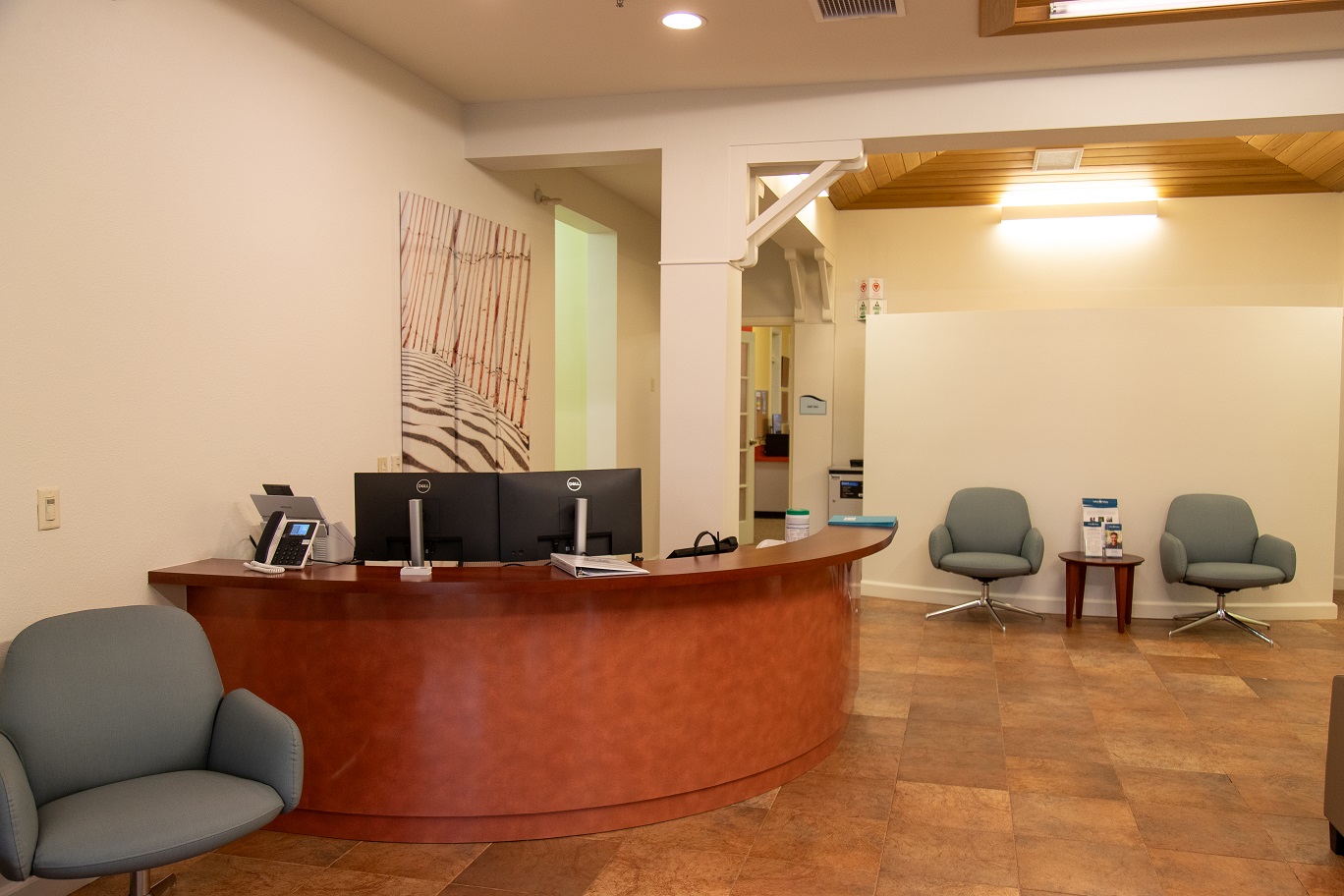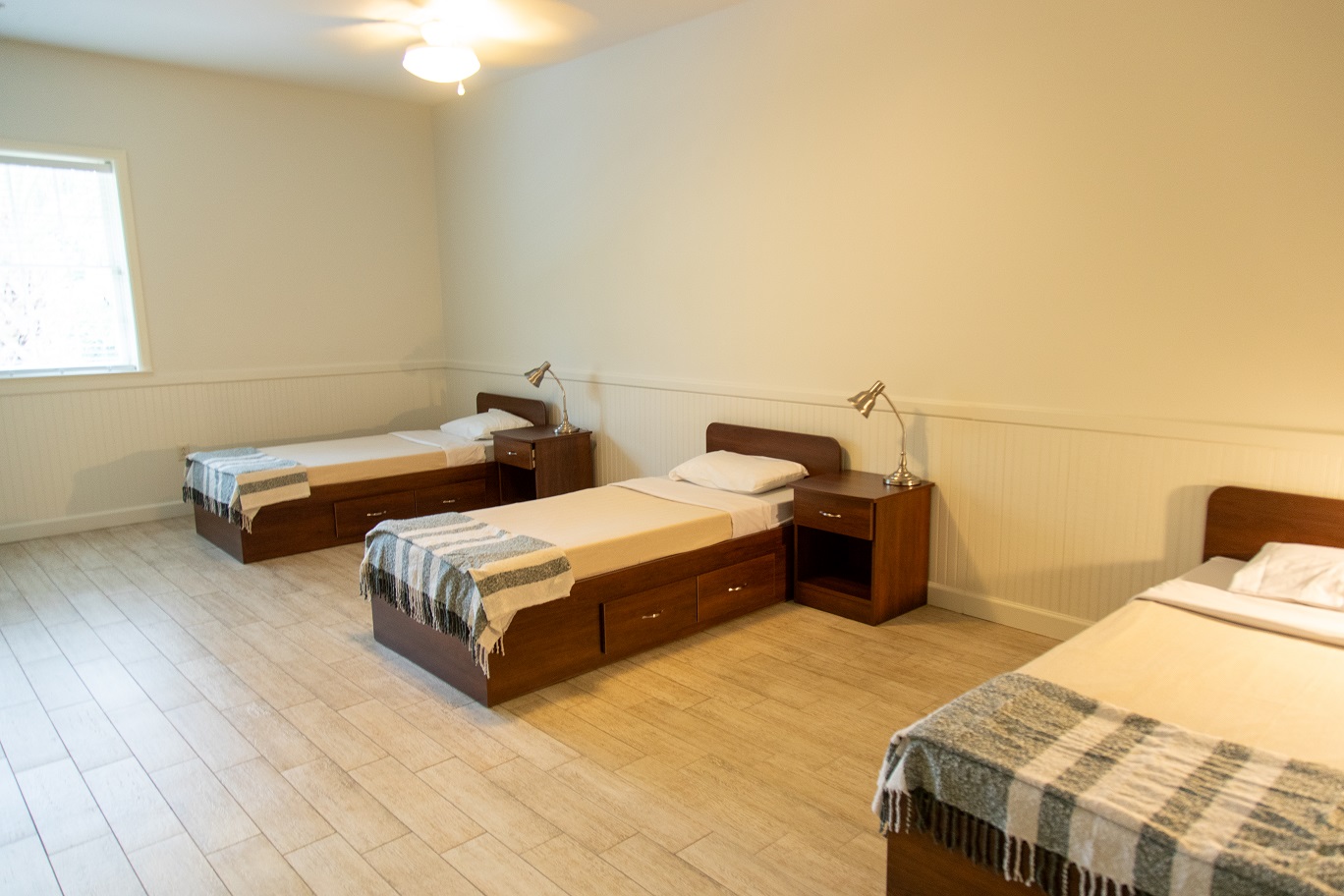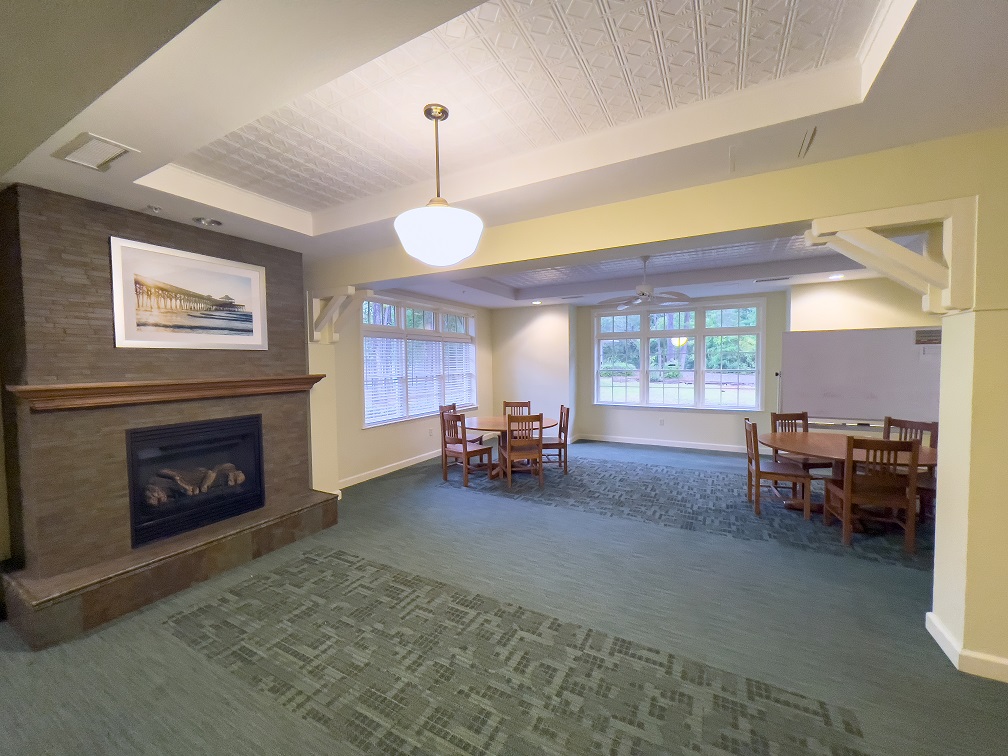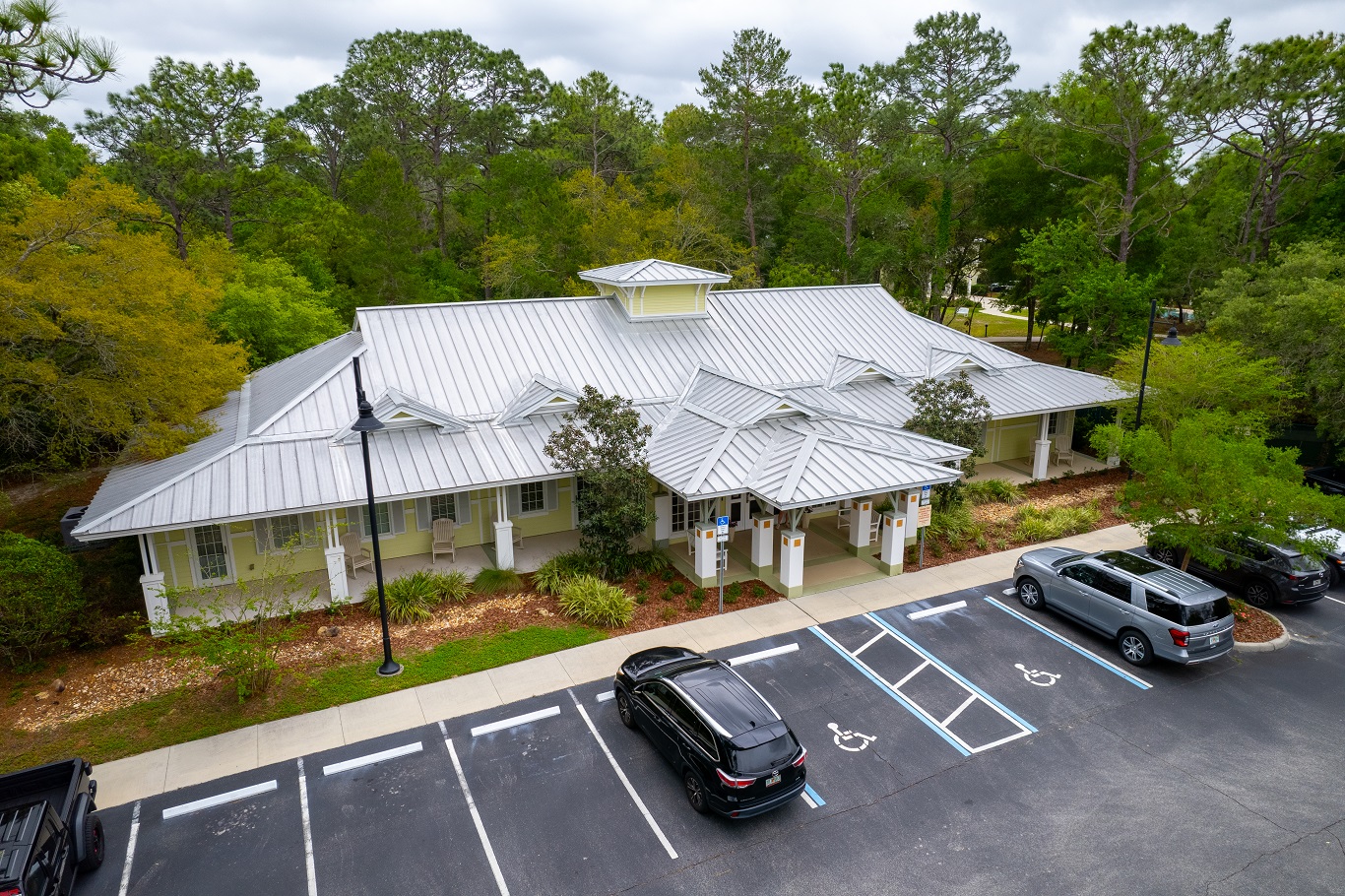At Sabal Palms Recovery Center in Brooksville, Florida, we understand that every person’s story is unique. Our residential treatment facility for adults age 18 and older is a safe and tranquil place for you to begin your healing journey. During your stay, you will work closely with our team of compassionate mental health professionals and addictionologist, who can help you develop the tools you need to manage struggles with addiction and co-occurring anxiety disorder symptoms.
Signs & Symptoms of Anxiety Disorders
Everyone experiences feelings of stress and anxiety from time to time. It’s expected that you may feel anxious during major life changes. However, if those feelings of anxiety persist and interfere with your daily life, you may have an anxiety disorder. There are also times when someone may struggle with both addiction and a co-occurring anxiety disorder.
There are several different types of anxiety disorders, including generalized anxiety disorder (GAD), panic disorder, and social anxiety disorder. While there are overlapping symptoms between each anxiety disorder, not everyone needs to experience every symptom to receive a diagnosis. If you or someone you love is struggling with symptoms of an anxiety disorder, it’s important to reach out to a behavioral health professional.
Anxiety affects each person differently, but there are certain signs and symptoms that may lead to an anxiety disorder diagnosis. Someone might have inward signs of an anxiety disorder long before outward behaviors are seen. Several factors, such as someone’s life experiences and medical history, can also influence the severity or onset of their symptoms. Additionally, if someone is suffering from an addiction, it is not uncommon for them to start experiencing symptoms of an anxiety disorder. In many cases, people may use substances to cope with anxiety, and that substance use has the potential to develop into an addiction.
Some common signs and symptoms of anxiety disorders are:
- Feeling irritable, on edge, or restless
- Shortness of breath
- Trembling or shaking
- Pounding heart or chest pain
- Muscle tension or achiness
- Frequent nausea or abdominal pain
- Dizziness, fainting, or unsteadiness
- Feeling detached from their own body
- Going to great lengths to avoid situations that cause anxiety
- Withdrawing from friends and family
- Getting tired easily
- Having difficulty falling or staying asleep
- Trouble concentrating
Regardless of what anxiety symptoms you may be struggling with, it is essential to seek professional help before symptoms get worse, especially if you are battling an addiction as well. Co-occurring anxiety can negatively impact countless areas of someone’s life, like their relationships, physical health, and personal sense of well-being.
Reaching out for help may be hard, but the team at Sabal Palms Recovery Center is here to support you on your healing journey.
Common Causes of & Risk Factors for Anxiety Disorders
There is no single identifiable cause of anxiety disorders, but researchers believe that a combination of genetics, personality traits, and brain chemistry can contribute to someone developing anxiety symptoms. Additionally, every person has unique life experiences that can put them at risk for suffering from an anxiety disorder. Specific risk factors for an anxiety disorder may include:
- Family history of anxiety disorders or other mental health concerns
- History of sexual or physical abuse, especially during childhood
- Exposure to chronic stress, prolonged illness, or negative life events
- Experiencing violence, war, discrimination, or prejudice
- Death of a loved one
Having one of these risk factors does not mean that someone will develop an anxiety disorder. Some people may also develop anxiety disorder symptoms in the absence of these risk factors. However, by learning more about anxiety disorders, someone may be able to recognize their risk and seek help before symptoms become severe.
If you believe that one or more of these risk factors apply to you, we encourage you to talk to a mental health professional as soon as possible. If a mental health condition like an anxiety disorder is not properly assessed and cared for, it can lead to decreased functioning in multiple areas of your life.
Anxiety Disorder Statistics
Anxiety disorders are one of the most common mental health conditions in the United States. With greater awareness and access to care, people who have anxiety disorders can learn how to manage their symptoms and improve their quality of life.
The Anxiety and Depression Association of America and Mental Health America reported the following statistics on anxiety disorders in the United States:
- About 40 million adults age 18 and older, or 18% of the population, suffer from anxiety disorders.
- Approximately 6 million adults struggle with panic disorder.
- Social anxiety disorder impacts 15 million adults.
- More than half of LGBTQ+ people report suffering from severe anxiety on a regular basis.
- Most people who have anxiety disorders begin to experience their first symptoms before age 21.
- Women are twice as likely as men to suffer from generalized anxiety disorder and panic disorder.
- Less than 40% of people who are suffering from an anxiety disorder receive help for their symptoms.
People of any sex, race, or gender identity can have an anxiety disorder, and the team at Sabal Palms Recovery Center is here to provide the comprehensive care they need. Our peaceful campus is designed for every person who has an addiction and co-occurring anxiety disorder to begin their healing journey in a supportive environment, regardless of their background.
Effects of Untreated Anxiety Disorders
An untreated anxiety disorder can have significant detrimental effects on a person’s life. These effects can be both physical and psychological, impacting the person’s ability to succeed at work, have healthy relationships, and perform daily tasks. Although anxiety impacts different people in different ways, these are some of the most common long-term effects of untreated anxiety disorders:
- Ongoing fear and distress
- Physical ailments such as chronic pain, muscle tension, and gastrointestinal problems
- Strained relationships with loved ones
- Prolonged feelings of isolation and loneliness
- Trouble keeping up with school or work requirements, impacting performance and leading to poor grades or unemployment
- Financial challenges
- Difficulty completing daily household tasks
- Alcohol or drug abuse
It is important for a person who has an anxiety disorder to seek help to prevent these negative effects from occurring.
No matter the severity of the symptoms you’re experiencing, or your goals for the future, the team at Sabal Palms Recovery Center is committed to helping you succeed in your healing process.
What Happens if My Anxiety Symptoms Return?
Receiving professional help for anxiety disorder symptoms can be life-changing. At Sabal Palms Recovery Center, we are here to help you discover ways to effectively manage the symptoms you’re experiencing and ultimately pave the way for lasting health and wellness. However, as you start your wellness journey, you may find that some anxiety disorder symptoms return.
It’s important to understand that if anxiety symptoms return, it is not a sign of personal failure or weakness. The road to lasting healing from any mental health condition can be winding, and you may have setbacks along the way. It is essential to remain patient and show yourself grace as you continue to heal and grow.
At Sabal Palms Recovery Center, our team of mental health professionals is here to help you develop tools for handling anxiety symptoms in a healthy way. These tools may include mindfulness practices, coping skills, and self-care routines.
Having these tools can help you feel empowered and confident in your ability to manage any recurring anxiety symptoms. We understand that reaching out for help for an anxiety disorder is a huge step and can feel intimidating. By receiving professional support from the caring team at Sabal Palms Recovery Center, you can set the groundwork for lasting healing.
Common Underlying or Co-Occurring Disorders
People who have anxiety disorders often experience intense feelings of worry, fear, and dread, significantly impairing their daily functioning and quality of life. In some cases, individuals who have anxiety disorders may also suffer from other underlying or co-occurring mental health conditions or addictions, which can complicate their diagnosis and plan of care.
Having an addiction can also increase someone’s risk for having anxiety. In those cases, it is important that people receive treatment that addresses both concerns.
It is crucial to seek help for any addiction and co-occurring mental health concern, and if you are struggling with symptoms of multiple concerns, it is important that you receive care from professionals who can address all your symptoms and ensure that you get the comprehensive support you need.
At Sabal Palms Recovery Center, we offer residential care for adults who have addictions and co-occurring anxiety disorders. Our team of mental health professionals has extensive experience diagnosing and treating addictions and co-occurring disorders, including anxiety. We use various evidence-based and experiential therapies to help you identify struggles and learn how to manage symptoms.



































